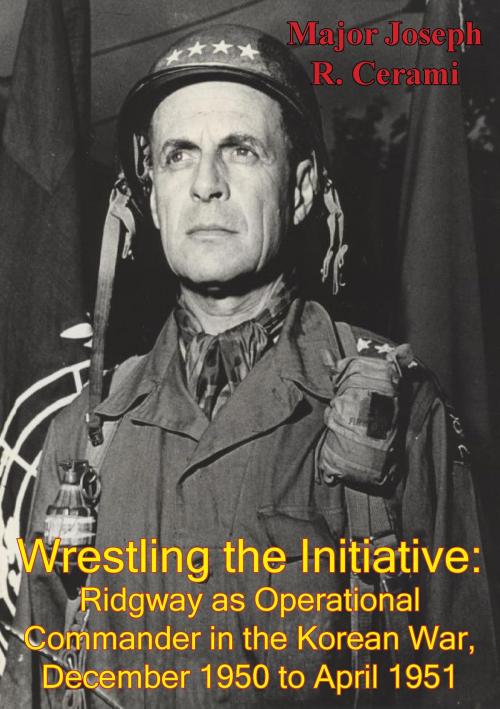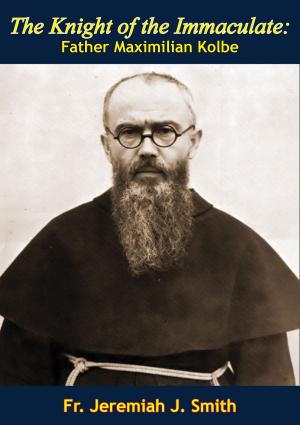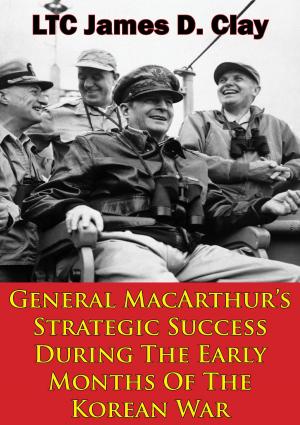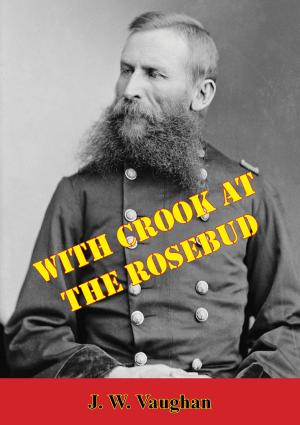Wrestling The Initiative: Ridgway As Operational Commander In The Korean War, December 1950 To April 1951
Nonfiction, History, Asian, Korean War, Military, India| Author: | Major Joseph R. Cerami | ISBN: | 9781782899136 |
| Publisher: | Normanby Press | Publication: | August 15, 2014 |
| Imprint: | Normanby Press | Language: | English |
| Author: | Major Joseph R. Cerami |
| ISBN: | 9781782899136 |
| Publisher: | Normanby Press |
| Publication: | August 15, 2014 |
| Imprint: | Normanby Press |
| Language: | English |
This monograph examines the conduct of operations of the U.S.’ Eighth Army under the command of General Matthew B. Ridgway in the Korean War. During the period of Ridgway’s command, from late Dec. of 1950 through April of 1951, the Eighth Army stopped an offensive campaign being conducted by Chinese Communist Forces. After completing a successful withdrawal and defense, Ridgway’s Army mounted a series of offensive operations to regain lost territory and re-establish a defensive line along the 38th Parallel, Thus, this case study examines the campaign of an operational commander who successfully wrested the initiative back from the enemy and illustrates the significance of the AirLand Battle tenet of “initiative” at the operational level of war.
...In sum, this monograph uses classical theory, current doctrine, and history in evaluating Ridgway’s operational design, planning and execution during the Eighth Army’s withdrawal, defensive and offensive operations. This case study examines the linkages between the tactical, operational and strategic levels of war. The physical, cybernetic and moral domains of war are employed as a framework for analysis. Several insights emerge from this case study including the significance of: gaining and retaining the initiative in the conduct of both defensive and offensive operations; seeking tactical and operational success, even in the absence of clear strategic aims; building an army’s will to fight and win, and the overriding importance of the moral domain; conducting realistic and deliberate planning, and the difficulty of transitioning from the operational defense to the operational offense; and using strength against weakness. Finally, and perhaps most significantly, this study reveals the importance of the operational commander and the genius of Matthew B. Ridgway in the Korean War.
This monograph examines the conduct of operations of the U.S.’ Eighth Army under the command of General Matthew B. Ridgway in the Korean War. During the period of Ridgway’s command, from late Dec. of 1950 through April of 1951, the Eighth Army stopped an offensive campaign being conducted by Chinese Communist Forces. After completing a successful withdrawal and defense, Ridgway’s Army mounted a series of offensive operations to regain lost territory and re-establish a defensive line along the 38th Parallel, Thus, this case study examines the campaign of an operational commander who successfully wrested the initiative back from the enemy and illustrates the significance of the AirLand Battle tenet of “initiative” at the operational level of war.
...In sum, this monograph uses classical theory, current doctrine, and history in evaluating Ridgway’s operational design, planning and execution during the Eighth Army’s withdrawal, defensive and offensive operations. This case study examines the linkages between the tactical, operational and strategic levels of war. The physical, cybernetic and moral domains of war are employed as a framework for analysis. Several insights emerge from this case study including the significance of: gaining and retaining the initiative in the conduct of both defensive and offensive operations; seeking tactical and operational success, even in the absence of clear strategic aims; building an army’s will to fight and win, and the overriding importance of the moral domain; conducting realistic and deliberate planning, and the difficulty of transitioning from the operational defense to the operational offense; and using strength against weakness. Finally, and perhaps most significantly, this study reveals the importance of the operational commander and the genius of Matthew B. Ridgway in the Korean War.




![Cover of the book With Kitchener To Khartum [Illustrated Edition] by Major Joseph R. Cerami](https://www.kuoky.com/images/2014/august/300x300/9781782899235-69qS_300x.jpg)
![Cover of the book Vietnam from Cease-Fire to Capitulation [Illustrated Edition] by Major Joseph R. Cerami](https://www.kuoky.com/images/2016/august/300x300/9781787200814-ksgO_300x.jpg)








![Cover of the book Allied Marines In The Korean War: Train Wreckers And Ghost Killers [Illustrated Edition] by Major Joseph R. Cerami](https://www.kuoky.com/images/2014/august/300x300/9781782899259-kHMb_300x.jpg)
